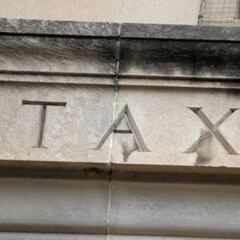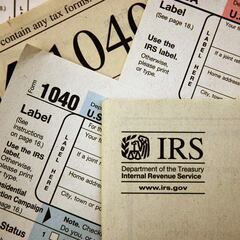What are the four types of student loans?
Millions of people take out students loans every year and there are several options with different eligibility requirements and repayment conditions.


The vast majority of student loans taken out in the United States are provided by the federal government, with the Department of Education acting as lender for millions of students every year.
Typically the federal loans come with more favourable terms than the private student loans that are also on the market, and there are a variety of federal student loans available. They all include some level of interest payments, meaning that the size of the debt will grow the longer that it remains unpaid, but by thinking through the options you can find the one that works for you
Four types of federal student loans
- Direct subsidized loans
- Direct unsubsidized loans
- Direct PLUS loans
- Direct consolidation loans
Currently the Department of Education is enacting a temporary period of covid-19 emergency relief for students with federal student loans. Until 31 January 2022 there is a 0% interest rate on all loans and they have stopped collections on defaulted loans. The information in this article refers to the standard conditions which will come into effect from February.
Direct subsidized loans
The subsidized loans are available for undergraduates who satisfy conditions proving that they have a specific financial need. If eligible, you will be able to take advantage of more favourable terms and certain interest-free periods.
Currently the interest rate for this time of student loan is 2.75%, fixed for the entirety of the loan. There is also an origination fee, which is deducted proportionately from each loan payment you receive. Direct subsidized loans are also eligible for additional loan forgiveness programmes, and offer several repayment plans designed to support recipients through financial difficulties.
Direct unsubsidized loans
Unlike the subsidized version, the direct unsubsidized loans accrue interest throughout their lifetime (except in exceptional circumstances, such as the covid-19 relief period). Subsidized loans are available to both undergraduates and post-graduates and there are no financial requirements to enrol.
The interest rate, origination fee and forgiveness options for unsubsidized loans are the same as for the subsidized version. However the annual interest rate for graduates and professional students is considerably higher and currently sits at 4.3%.
500,000+ public service workers now qualify for student loan forgiveness after previously being denied — here’s what you need to know
— NowThis (@nowthisnews) November 3, 2021
(with @SerenaMarsh) pic.twitter.com/5gx5189V4O
Direct PLUS loans
Direct PLUS loans are available for graduate and professional students (Grad PLUS loan) or parents of dependent undergraduate students (Parent PLUS loan). Both the subsidized and unsubsidized loans have a borrowing limit and the Direct PLUS options are a boost in case the primary loan is not sufficient.
A credit check may be required but applicants with an insufficient credit history may still be able obtain a Direct PLUS loan through use of a co-signer or endorser. However bear in mind that these loans have a higher interest rate of 5.3% and an origination fee of 4.228%.
Direct Consolidation Loans
Unlike the other types of federal loans, Direct Consolidation Loans are typically requested after the student graduates and are used to combine any eligible student loans into a single loan.
Related stories
There is no application fee and the interest rate will be weighted to reflect the various terms and conditions of the loans included in the package. You can tie consolidation loans to income levels, meaning that you repay at a rate that is related to your earnings.
Utilising a Direct Consolidation Loan can make repayment simpler by combining all payments into a single package, but you can risk losing out on access to some benefits programmes if you choose to consolidate the loans. You will lose the credit gained in Public Service Loan Forgiveness (PSLF) plans you are engaged in if you take out a Direct Consolidation Loan.

